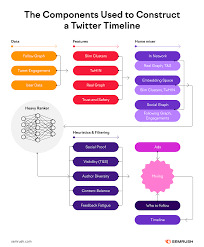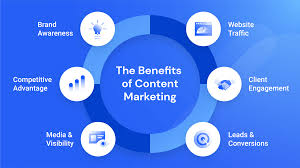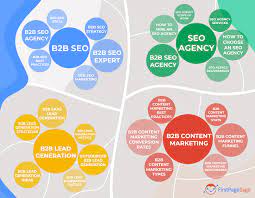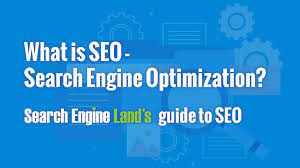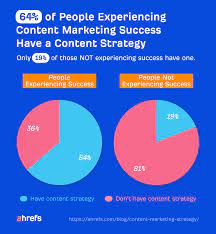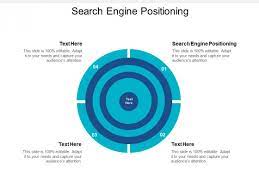Unlocking the Power of Twitter SEO: Enhance Your Visibility and Engagement
Twitter SEO: How to Improve Your Visibility on the Platform
Twitter is not just a social media platform; it can also be a powerful tool for improving your online visibility through search engine optimisation (SEO). By optimising your Twitter profile and tweets, you can attract more followers, increase engagement, and ultimately drive more traffic to your website. Here are some tips to enhance your Twitter SEO:
Optimise Your Twitter Profile
Make sure your Twitter bio includes relevant keywords related to your industry or business. Use a clear profile picture and header image that represent your brand effectively. Include a link to your website in the designated space.
Use Keywords in Your Tweets
Incorporate relevant keywords into your tweets to make them more discoverable in Twitter search results. Use hashtags strategically but avoid overloading your tweets with them. Focus on creating valuable content that resonates with your audience.
Engage with Followers
Engagement is key on Twitter. Respond to mentions, retweet relevant content, and participate in conversations within your industry. Building relationships with followers can improve your visibility and credibility on the platform.
Share Visual Content
Visual content such as images and videos tend to perform well on Twitter. Including eye-catching visuals in your tweets can increase engagement and make your content more shareable, further boosting your visibility.
Monitor Analytics
Use Twitter analytics tools to track the performance of your tweets and profile. Pay attention to metrics such as impressions, engagements, and click-through rates. Analyse what works best for your audience and adjust your strategy accordingly.
Collaborate with Influencers
Partnering with influencers in your industry can help expand the reach of your tweets and increase visibility among their followers. Identify relevant influencers who align with your brand values and collaborate on campaigns or promotions.
In conclusion, incorporating SEO tactics into your Twitter strategy can significantly impact your online visibility and overall digital marketing efforts. By following these tips and staying active on the platform, you can enhance engagement, attract new followers, and drive traffic to your website through effective Twitter SEO.
Top 8 Frequently Asked Questions About Optimising Twitter for SEO Success
- 1. What is Twitter SEO and why is it important?
- 2. How can I optimise my Twitter profile for better SEO?
- 3. What role do keywords play in improving visibility on Twitter?
- 4. Is engagement with followers crucial for Twitter SEO success?
- 5. How does visual content impact SEO on Twitter?
- 6. Which analytics should I monitor to track the performance of my tweets on Twitter?
- 7. Are collaborations with influencers beneficial for Twitter SEO?
- 8. What are some common mistakes to avoid when implementing SEO strategies on Twitter?
1. What is Twitter SEO and why is it important?
Twitter SEO refers to the practice of optimising your Twitter profile and tweets to improve visibility and attract more followers on the platform. It involves using relevant keywords, engaging with followers, sharing valuable content, and monitoring analytics to enhance your presence in Twitter search results. Twitter SEO is important because it helps increase your brand’s online visibility, drives traffic to your website, and boosts engagement with your target audience. By implementing effective Twitter SEO strategies, you can strengthen your online presence, build credibility, and ultimately achieve your digital marketing goals on this dynamic social media platform.
2. How can I optimise my Twitter profile for better SEO?
Optimising your Twitter profile for better SEO involves several key steps to enhance your visibility on the platform. Start by crafting a compelling bio that incorporates relevant keywords related to your industry or business. Use a clear profile picture and header image that reflect your brand identity effectively. Ensure to include a link to your website in the designated space to drive traffic. Consistency in branding and messaging across your profile is essential for establishing credibility and attracting followers. By implementing these strategies, you can improve the discoverability of your Twitter profile and increase engagement with your target audience.
3. What role do keywords play in improving visibility on Twitter?
Keywords play a crucial role in improving visibility on Twitter by making your tweets more discoverable to users searching for specific topics or interests. By strategically incorporating relevant keywords into your tweets, you increase the chances of appearing in search results and attracting a targeted audience. Using industry-specific terms, trending hashtags, and popular phrases can help boost the visibility of your content and attract engagement from users interested in those topics. Therefore, leveraging keywords effectively on Twitter can enhance your online presence, drive more traffic to your profile, and ultimately improve your overall visibility on the platform.
4. Is engagement with followers crucial for Twitter SEO success?
Engagement with followers plays a pivotal role in achieving success in Twitter SEO. Interacting with your audience through replies, retweets, and likes not only fosters a sense of community but also signals to the Twitter algorithm that your content is valuable and relevant. This active engagement can lead to increased visibility on the platform, as Twitter is more likely to promote accounts that consistently engage with their followers. By prioritising interactions and building meaningful relationships with your audience, you can enhance your Twitter SEO efforts and ultimately improve your overall presence on the platform.
5. How does visual content impact SEO on Twitter?
Visual content plays a crucial role in enhancing SEO on Twitter. Tweets with images or videos tend to attract more engagement and stand out in users’ feeds, increasing the likelihood of being shared and reaching a wider audience. Visual elements not only make tweets more appealing but also improve the overall user experience, leading to higher retention rates and increased click-through rates. Including relevant visual content in your tweets can boost your visibility on Twitter, improve your profile’s discoverability, and ultimately contribute to better SEO performance on the platform.
6. Which analytics should I monitor to track the performance of my tweets on Twitter?
When it comes to tracking the performance of your tweets on Twitter, there are several key analytics that you should monitor closely. These include metrics such as impressions, engagements, click-through rates, and follower growth. Impressions indicate the number of times your tweet has been seen by users, while engagements measure the interactions such as likes, retweets, and replies. Click-through rates reveal how many users clicked on links or media included in your tweet. Monitoring follower growth can also provide insights into the impact of your tweets on expanding your audience reach. By analysing these analytics regularly, you can gain valuable insights into the effectiveness of your Twitter strategy and make informed decisions to enhance your online visibility and engagement on the platform.
7. Are collaborations with influencers beneficial for Twitter SEO?
Collaborations with influencers can indeed be highly beneficial for Twitter SEO. When influencers with a significant following share your content or mention your brand on Twitter, it can amplify your reach and visibility on the platform. Their endorsement can attract new followers, increase engagement, and drive traffic to your website. Additionally, influencer collaborations can enhance your brand credibility and authority within your industry, which can positively impact your search engine rankings. By leveraging the influence of key personalities in your niche, you not only expand your audience but also boost your overall SEO efforts on Twitter.
8. What are some common mistakes to avoid when implementing SEO strategies on Twitter?
When implementing SEO strategies on Twitter, it is essential to be aware of common mistakes that can hinder your efforts. One common mistake to avoid is neglecting the use of relevant keywords in your tweets and profile bio. Keywords play a crucial role in making your content discoverable on Twitter search results. Another mistake is overusing hashtags, which can make your tweets appear spammy and reduce engagement. Additionally, failing to engage with followers and participate in conversations within your industry can limit the reach of your tweets. It’s important to strike a balance between promotional content and genuine interactions to maintain a strong presence on Twitter. By avoiding these common pitfalls and staying informed about best practices, you can enhance the effectiveness of your SEO strategies on Twitter.
